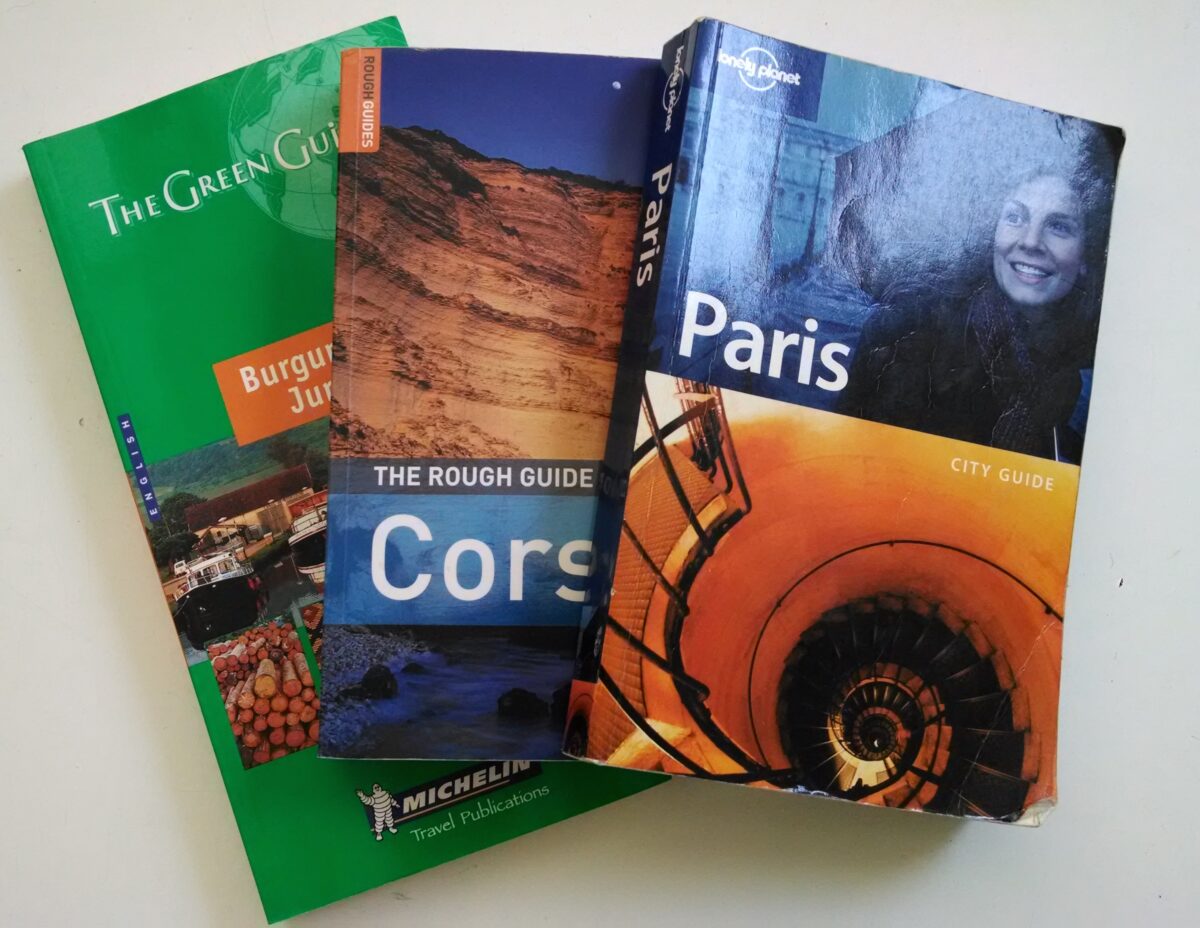
If you’re planning to visit France, you should really learn a few expressions of French for travel. You can practice essential 50 French words and phrases here.
Most French guidebooks will have a section with a list of such “essentials”. However, just looking at them will not let you pronounce them correctly, nor put them into your memory.
That’s why we not only give you the audio, but also let you practice them by recording your voice.
And by practicing with the Quizlet flashcards and exercises at the end you will remember these words and phrases when you need them!
Starting with greetings and polite phrases, French 1 for Travel is arguably the “must do” lesson you should practice .
You’ll learn to ask “Où se trouve…?” questions in French 2 , in French 3 you’ll hear some possible answers. In French 4 you’ll learn useful restaurant basics.
French is an official language in 29 countries. Looking at Europe: French is spoken as a first language in France and Monaco, as well as in parts of Belgium, Switzerland, and Luxembourg. Beyond that, French is spoken as a first language in parts of Canada, and as a second language in numerous other sovereign states and territories. [See Wikipedia]
French has a big overlap in words with English. The main reason for that goes back to the Norman Invasion of England in 1066 and the Battle of Hastings, when William the Conqueror won his claim to the British throne.
When learning French, it’s of course helpful that many words are similar.
There are many cognates that also share meaning.
However, some common cognates are false friends. These “faux amis” look the same, but they have different meanings. You’re probably familiar with “pain” which means “bread” in English (and not “pain”, for which the French word is “douleur”). Here are a few more:
Other French false friends that may baffle you on your travels:
la monnaie – loose change (money is “l’argent” in French)
le coin – corner, local area (a coin is “une pièce de monnaie” in French)
une journée – a day (a journey is “un voyage” in French)
une brasserie – a brewery (a brassiere is “un soutien-gorge” in French)
une cave – a wine cellar (a cave is “une grotte” in French)
In French 1, you’ll learn common greetings, and essential phrases.
In French2, you’ll practice asking basic “Where is ….” questions.
In French 3, you’ll become familiar with directional phrases.
In French 4, you can try out terms to use in a restaurant.
Cognitive Training & Language learning
Anecdotes, common sense, or even personal experiences have long pointed to the It turns out that something as ordinary as speaking a couple of languages reconfigures the brain network in a way that positively affects certain things that brains do.grey-cell” benefits of learning a second (or third) language as an adult. This is also supported by brain research.
For example, a 2012 study performed by a group of researchers at the Umeå Center for Functional Brain Imaging at Lund University shows that language learning makes the brain grow. “There is a lot to suggest that learning languages is a good way to keep the brain in shape,” says Johan Mårtensen, one of the participating researchers at the university.
Or, research by Ellen Bialystok of York University in Toronto, Canada, who also concludes that bilingualism sharpens the mind. In an interview, conducted in 2011 for the British newspaper, The Guardian, Bialystok talks about the cognitive enhancement that many bilinguals experience. She states: “It turns out that something as ordinary as speaking a couple of languages reconfigures the brain network in a way that positively affects certain things that brains do.”
Video Games and Language learning
Combing language learning with Video Games should therefore be a natural marriage and a “no-brainer.” (excuse the pun!) If both activities enhance our brain and memory functions, those of us who like games would get a “twofer”: Having fun playing while learning a language at the same time. Language learning apps, such as Mindsnacks and Duolingo, etc., and online language learning sites such as GamesforLanguage, Digital Dialects, etc., all use games and gamification as their main teaching tools and are getting increased attention. However, compelling video games that combine effective language training and pure fun are just starting to gain momentum.
So for all you language learners: If you find fun video games for learning a language – continue with them: They are unlikely to have a detrimental effect on your brain activities – and, just maybe, they will even boost them. And as an added benefit, you’ll know how to communicate in another language!
And if your French is already more advanced, you may enjoy reading about Apples, Butter, Rain and More in French Idioms on our sister site GamesforLanguage .